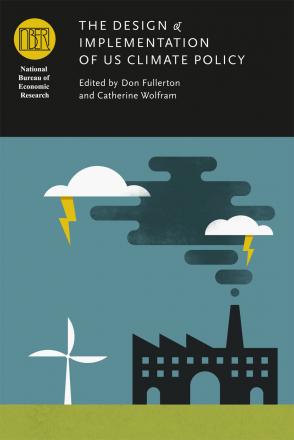This book contains the proceedings of an NBER conference held in Washington, DC, on May 13-14, 2010. Recent political developments in Washington might make adoption of comprehensive climate policy unlikely in the near term, but economics research must take a longer view. The conference was held in Washington, DC, because we hope that the various topics covered in this book will be useful to economists and policymakers contemplating future climate policy, whether that may include direct approaches such as a cap-and-trade system or indirect policies such as tax credits, clean energy subsidies, or renewable fuel standards.
We are very grateful for the generous financial support of the Smith Richardson Foundation, for intellectual encouragement from Jim Poterba, and for terrific organizational support from the wonderful people within NBER, including efficient conference organizing by Carl Beck and Rob Shannon, effective production of the book by Helena Fitz-Patrick, and timely budget assistance from Denis Healy, Alterra Milone, and Alison Oaxaca. We received excellent substantive suggestions from two anonymous reviewers. We also benefited from panel presentations at the conference by three Washington practitioners, including Joseph Aldy, Nathaniel Keohane, and Al McGartland. Several policymakers generously provided written comments and extended conversations that helped us refine the set of topics the book covered. These include Terry Dinan, Doug Elmendorf, Jud Jaffe, Jeff Liebman, and Billy Pizer. We also want to express our extreme gratitude to the chapter authors. They not only undertook new research on challenging topics and wrote the chapters, but each author also served as a discussant for one of the other presentations. This interchange was interesting and helpful enough that we decided to publish each discussant's comments along with the corresponding chapter in the book.
Catherine Wolfram
Catherine Wolfram's spouse is employed by Calpine, which operates merchant electricity generating plants that could be affected by climate change policies.



